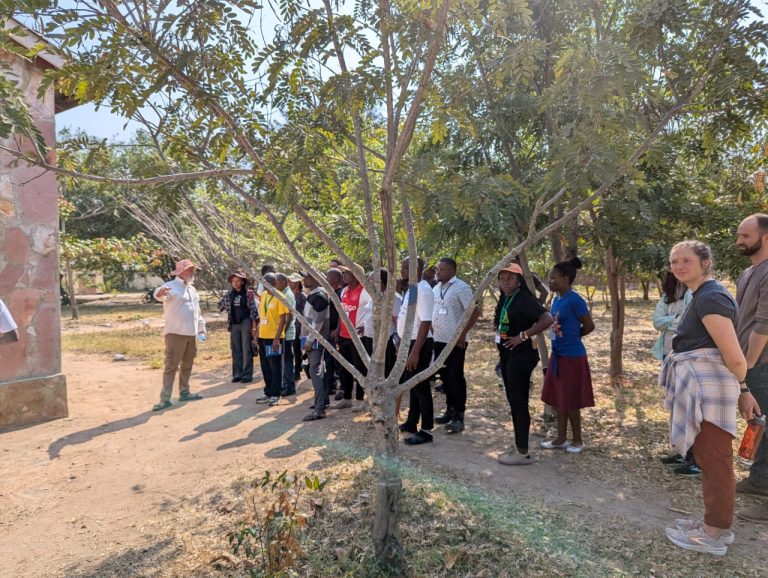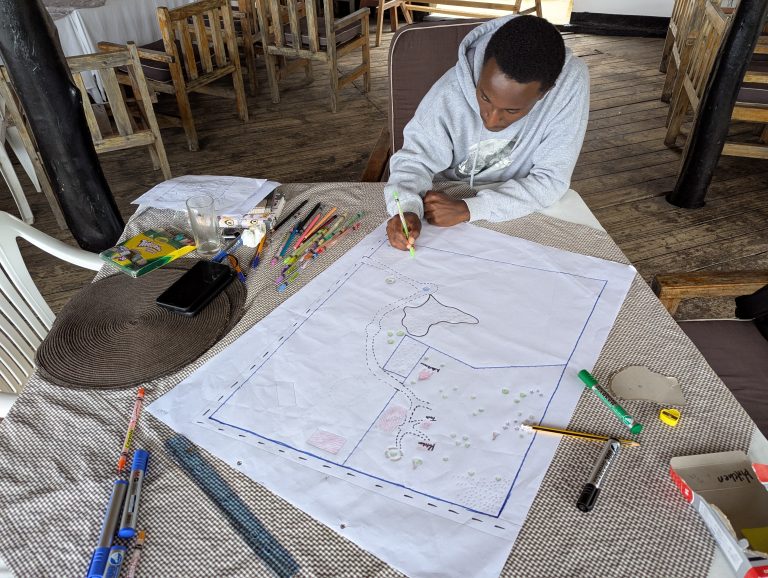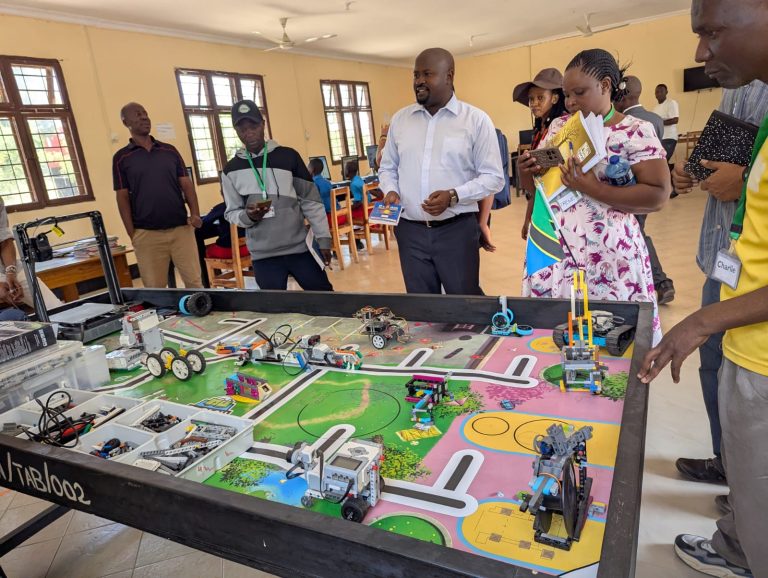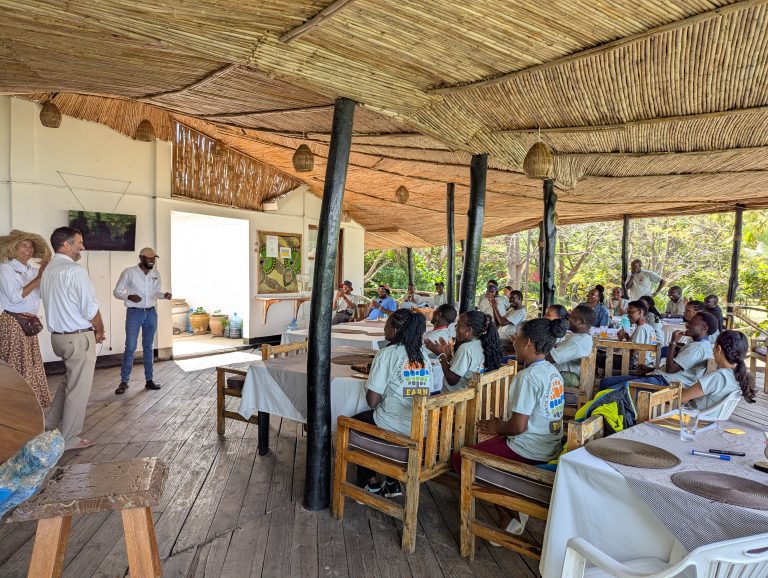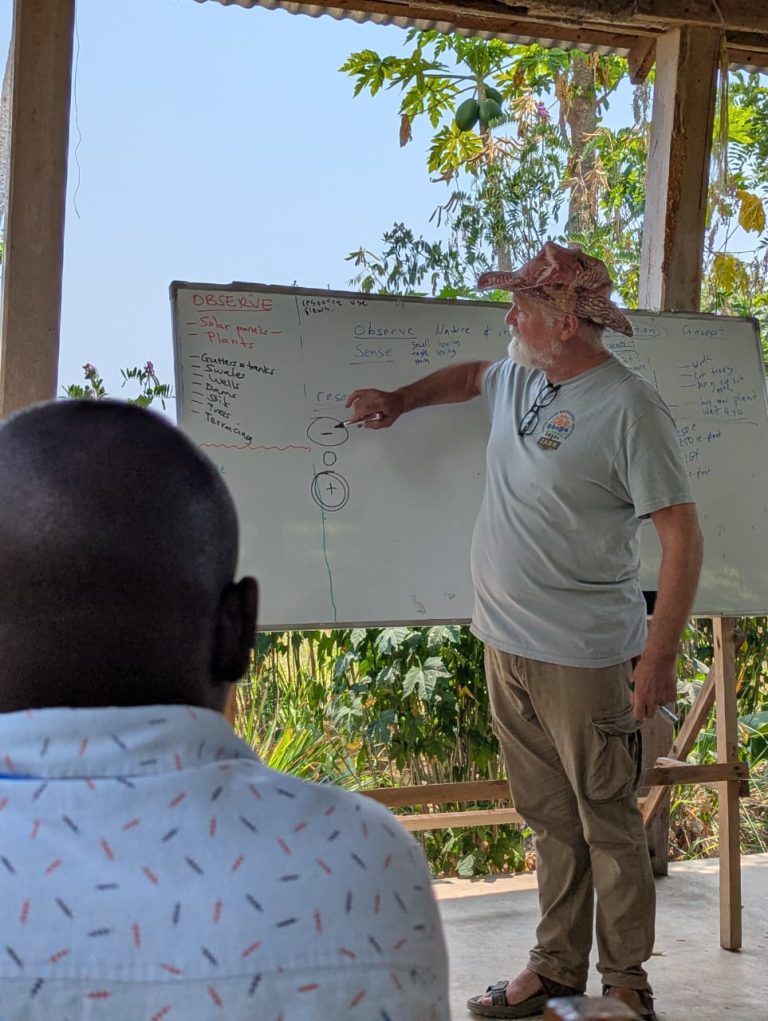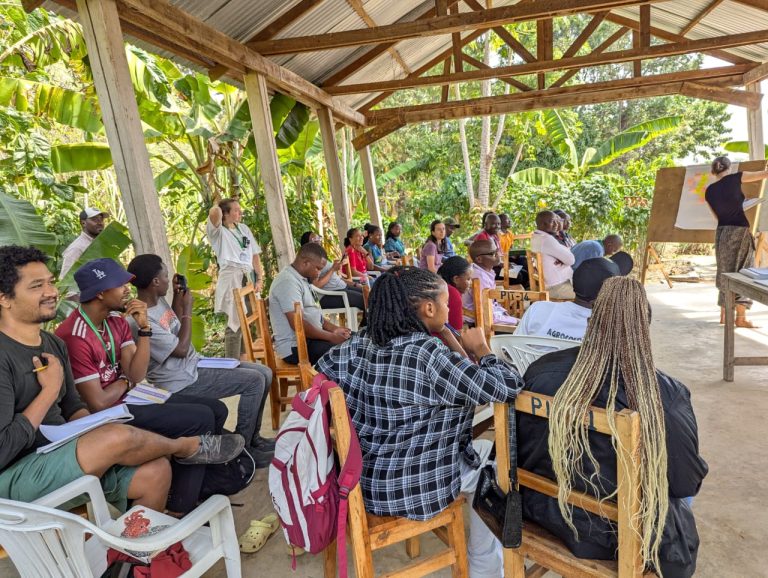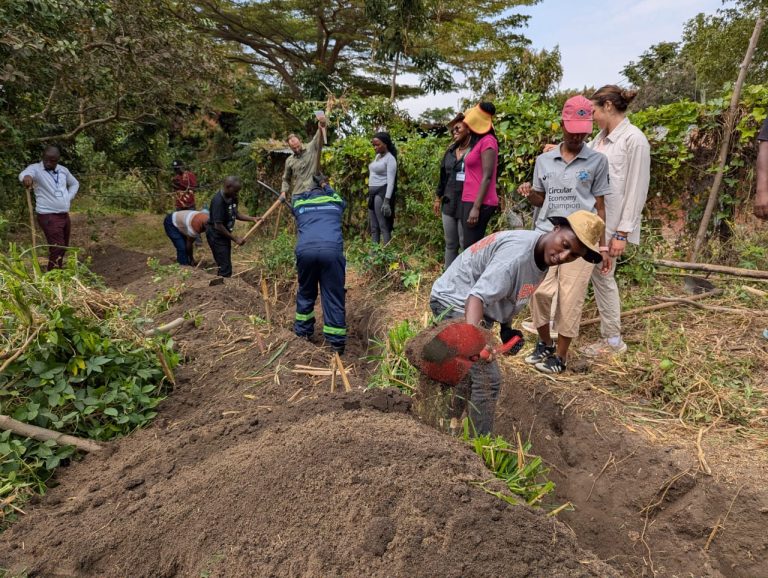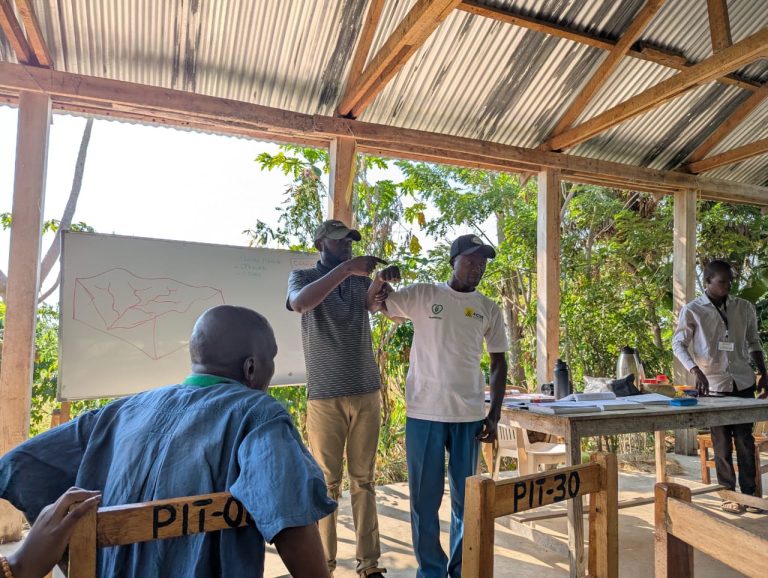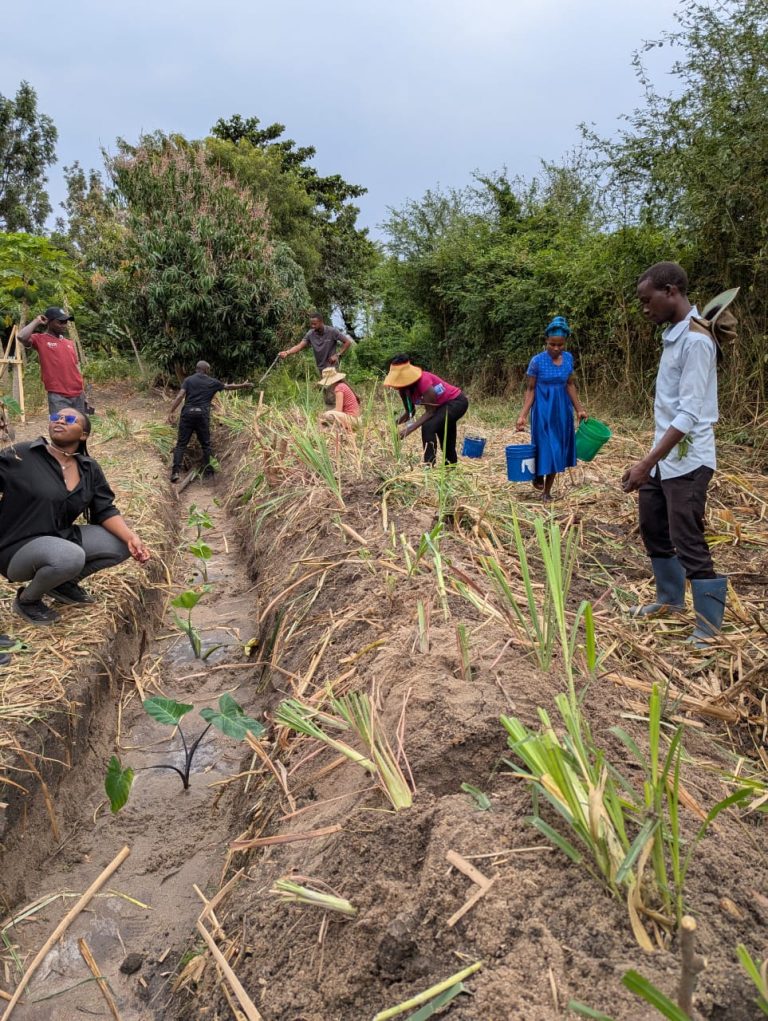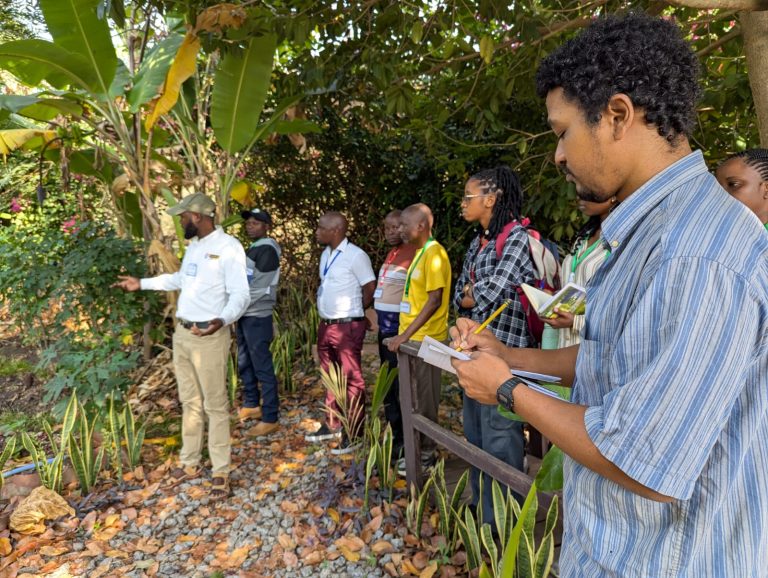Attending the Earth Allies Restoration Network (EARN) Permaculture Design Certification (PDC) course at MainSprings, Kitongo, Tanzania, for the second time was nothing short of transformative. The course, a 10-day (72-hour) training led by master trainers, ran from August 10th to 21st, 2025. Our project leads, Samuel and Jeff, were sponsored by EARN to attend this training and attain global permaculture accreditation. This partnership, secured in May 2025, is a key step towards establishing a regional permaculture center at our SIEVE project.
A Campus Transformed:
Our journey began with a guided campus tour on the first day, where we visited their demonstration farm, schools, a girls’ home, a community clinic, and various demo plots. The campus is living proof of transformation. Before they began their restoration journey, the land was overgrazed, rocky, and had poor soil. Today, it is a thriving ecosystem full of lush food forests, fertile soils, and wildlife habitats.
A unique and yet “shocking” reality was the presence of a big population of lizards, snakes, birds, and insects moving freely around. At MainSprings, people and animals interact freely, proving that they can coexist in harmony. It’s not just a campus; it’s a global showcase of sustainability.
Foundational Knowledge and Hands-On Learning
The PDC course, led by globally recognized trainers Mark Shepard, Lazaro Parasuan, and Antje Forstle , blended theory with hands-on practical sessions and community. We explored the three core ethics of permaculture—Earth Care, People Care, and Future Care—which reinforce the foundation for all permaculture practices. Beyond technical skills like soil management, water harvesting, agroforestry, and design mapping , the training highlighted the spirit of collaboration. We learned how to catch and store water efficiently for agricultural and ecological purposes and even constructed an A-frame, a tool used for leveling ground.
Collaboration and Collective Design
Learning alongside participants from across East Africa and globally, we saw how diverse communities are adapting permaculture to their unique cultures and landscapes. We supported a MainSprings farm staff member in developing and implementing a site design. As a group, we visited the site, mapped out existing plants, and contributed ideas. We then dug swales and planted a variety of tree species and vegetables.
Each participant also designed a permaculture site plan for their own location. We worked on the Social Innovation Eco Village (SIEVE) design, which included indigenous trees, livestock facilities, access paths, and farmhouse structures. We also had evening reflections and networking sessions, and were entertained by traditional dances performed by MainSprings students.
The Core Takeaway
Beyond the technical knowledge, the training provided meaningful lessons in personal growth and community building. A key takeaway from the PDC course was that permaculture is not just about farming. It’s about redistributing resources, knowledge, and land, and redesigning how we live with each other and with the earth. It’s about creating systems that restore land, strengthen communities, and spark hope for a resilient future.
A Vision for the Future
We are grateful to the Earth Allies Restoration Network (EARN) for the opportunity to become accredited permaculture designers. Inspired by MainSprings, we are committed to carrying this vision forward at SIEVE to inspire, restore, and transform both land and lives. We are working to establish a regional permaculture center that integrates sustainability with innovation, research, economic hubs, cultural heritage, and community empowerment. As a next step, an EARN expert will visit our site to kick off the design implementation.

